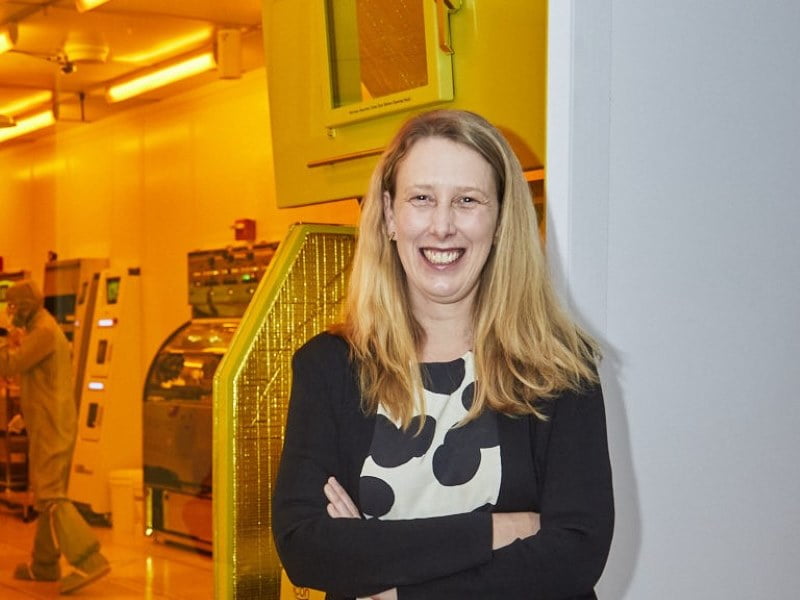Another $5.5 million has been awarded to 24 university research projects in the pilot phase of Australia’s $1.6 billion research commercialisation scheme.
Most of the work relates to value-adding in either the resources or agriculture, forestry and fisheries sectors, with projects ranging from pig vaccines to quantum sensors.
The Education department quietly revealed the recipients of tranche two seed grants on Tuesday, rounding out the pilot phase of the Australia’s Economic Accelerator (AEA) program.

The AEA is an 11-year, $1.6 billion stage-gated funding program that represents the bulk of a $2 billion research commercialisation plan developed by the Morrison government and adopted by the current government, which requires that projects align with national priorities.
Revealed this week, the second tranche of funding is backing projects with high translation or commercialisation potential that align with the priority areas of the Albanese government’s National Reconstruction Fund.
11 projects related to value-add in resources were funded, along with nine more in value-add in agriculture, forestry and fisheries. Renewables and medical science scored two projects each.
With eight of the 24 total projects, the University of Queensland and its researchers dominated the round.
Tranche one projects were revealed last week and the full scale version of AEA is expected to begin next year. Both the pilot and the full program launch have been pushed back after massive demand for the AEA from universities, which sought 10-times the available funding.
Education minister Jason Clare is yet to comment on the initial grants and is understood to still be considering appointments to the AEA advisory board that will guide the program and develop formal strategies.
The full AEA Ignite program is now expected to start next year and will award more one-year, $500,000 grants for proof of concept projects.
The full list of tranche two recipients:
| Value-add in agriculture, forestry and fisheries sectors | |||
| University | Project Title | Lead Entrepreneur | Grant Funding |
| Queensland University of Technology | Sustainably Sourced Hard Carbon from agricultural waste for use in sodium ion batteries | Prof Deepak Dubal | $384,271 |
| Queensland University of Technology | Cost effective advanced manufacturing of high-demand cannabinoids | Dr Carlos Luna-Flores | $199,853 |
| The Australian National University | Development of non-invasive imaging tools to identify recombinant protein expression in plant-based molecular farming | Dr Richard Poire | $166,117 |
| The University of Adelaide | Revolutionising Agriculture: Innovative Encapsulation Technologies for a Sovereign Supply Chain | Dr Yue Hui | $299,994 |
| The University of Queensland | A Spinifex-based Nanomaterials Platform for Climate-ready Crops and Mine-Site Restoration | Dr Jitka Kochanek | $300,000 |
| The University of Queensland | Single-shot anti-fertility vaccine in pigs | Dr Rachel Stephenson | $471,683 |
| The University of Queensland | Proof of concept cattle tick vaccine trial for commercial adoption | Dr Hannah Siddle | $260,652 |
| The University of Queensland | Toward a rapid antibody test (RAT) for phosphine resistant insect pests of stored grain | A/Prof Paul Ebert | $58,666 |
| University of South Australia | Olives the Australian Way – A new style of table olive using a novel debittering process | Prof John Fielke | $275,054 |
| Value-add in resources | |||
| University | Project Title | Lead Entrepreneur | Grant Funding |
| Monash University | Enabling the Lithium economy by creating value-added product(s) for energy storage market | Dr Md Joynul Abedin | $199,290 |
| Queensland University of Technology | Value Adding Natural Zeolite Resources: Enhanced Anaerobic Digestion for Biogas Production and Nutrient Management | Prof Graeme Millar | $288,977 |
| Swinburne University of Technology | Mining with muons: muon tomography methods for site exploration and safety management | Dr Federico Scutti | $153,823 |
| The University of Adelaide | Rapid development of new medical treatment compounds from radioactive mine waste | Ms Danielle Questiaux | $196,248 |
| The University of New South Wales | High-yield, low-cost manufacturing of quantum magnetic field sensors | Dr Maja Cassidy | $171,675 |
| The University of Queensland | Developing scaling-up process to produce haloalkaliphilic bacteria inoculum for industry-deployment to treat alkaline wastes from refining alumina | Dr Fang You | $193,720 |
| The University of Queensland | Converting raw mineral materials to highly efficient lighting and display devices | Dr Jingwei Hou | $197,102 |
| The University of Queensland | Improving flotation beneficiation of minerals | Dr Hangil Park | $156,431 |
| The University of Queensland | Ore-sand: a circular economy solution to reduce mineral wastes and produce alternative construction materials | Dr Juliana Segura Salazar | $180,000 |
| University of South Australia | Transforming Australian regions for sustainable development: a novel approach to efficient metal recovery for cleaning contaminated sites | A/Prof Larissa Statsenko | $298,056 |
| University of Southern Queensland | Manufacture and agronomic assessment of polymer-free lignite derived slow-release fertiliser (SRF) | A/Prof Lei Ge | $251,714 |
| Renewables and low emissions technologies projects | |||
| University | Project Title | Lead Entrepreneur | Grant Funding |
| The University of Adelaide | Sustainable metal extraction and recovery from metal-containing waste for renewable energy transition and circular economy | A/Prof Chi Wai Kwong | $199,783 |
| The University of Sydney | Sensing the unseen: Advanced hydrogen gas sensor | Prof Xiaoke Yi | $192,703 |
| Medical science projects | |||
| University | Project Title | Lead Entrepreneur | Grant Funding |
| Deakin University | World’s first chemical antibody-based intraoperative diagnostic platform for surgical pathology | Prof Wei Duan | $200,000 |
| The University of Melbourne | Towards Non-invasive Pathology using Thermal Imaging Spectroscopy for Skin Cancer Diagnosis | Miss Noor E Karishma Shaik | $200,000 |
Do you know more? Contact James Riley via Email.

